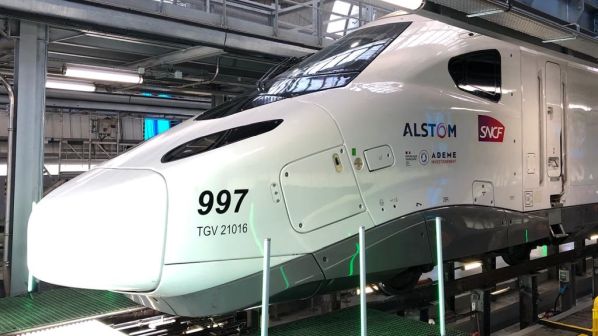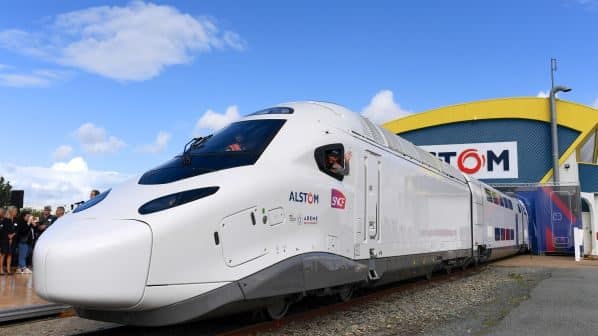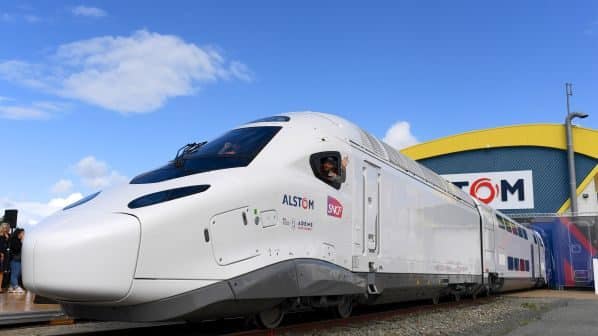ALSTOM has announced that pre-validation testing of the new TGV M high-speed train for SNCF Voyageurs on the French national network is being stepped up this month with the arrival of a second test train.
Pre-validation testing has been underway on the national network since June and is due to be completed in December.
Test runs with the first train, which reached the TGV M’s maximum commercial speed of 320km/h for the first time on September 14, have enabled current collection, traction, braking and other functions to be assessed.
The second train that is being deployed this month will enable all of the TGV M’s safety equipment to be tested. It will operate on the Sud Europe Atlantique high-speed line between Tours and Bordeaux, with between 25 and 30 engineers and other testing staff from Alstom and the rolling stock engineering department of SNCF Voyageurs onboard.
The pre-validation testing phase began in December 2022 at the Vélim test circuit in the Czech Republic, where operation of the TGV M was tested for the first time at speeds of up to 200km/h.
In March this year climatic testing was undertaken at the Rail Tec Arsenal facility in Vienna, Austria, in temperatures ranging from -20°C and +40°C. Alstom and SNCF Voyageurs say that this phase of the testing programme will enable them to assess the energy efficiency of the TGV M, which is designed to reduce consumption by 20%, and is therefore critical in the current context of climate change.
Performance of onboard components and systems has been assessed in the lab using a digital twin of the TGV M at the TrainLab developed by Alstom at its La Rochelle plant in western France.
SNCF Voyageurs has ordered a total of 115 TGV M high-speed trains for €3.5bn. The fifth generation of the French TGV family is due to enter service over a 10-year period starting in 2025, with the first trains operating on the Paris - Lyon - Marseille high-speed line.
They will be maintained at the Technicentre Sud Est Européen (TSEE) facility at Villeneuve-Saint-Georges in the southern suburbs of Paris, where SNCF Voyageurs has embarked on a major modernisation programme to upgrade facilities for the new TGV M fleet, including the installation of automatic inspection equipment.
Under the first phase of the €300m TSEE 4.0 programme running from 2023 to 2027, a two-track workshop building has been adapted to accommodate the TGV M, with this work completed in July.
Maintenance staff will be provided with constant remote access to train technical data, enabling them to monitor to the condition of onboard equipment. This will enable condition-based maintenance and make it possible to anticipate failures of doors, air-conditioning and other systems, while making it easier to plan and organise fleet maintenance in terms of the tools required, tasks to be conducted and the time needed to undertake work.
For detailed data on fleet orders from around the world, subscribe to IRJ Pro.




